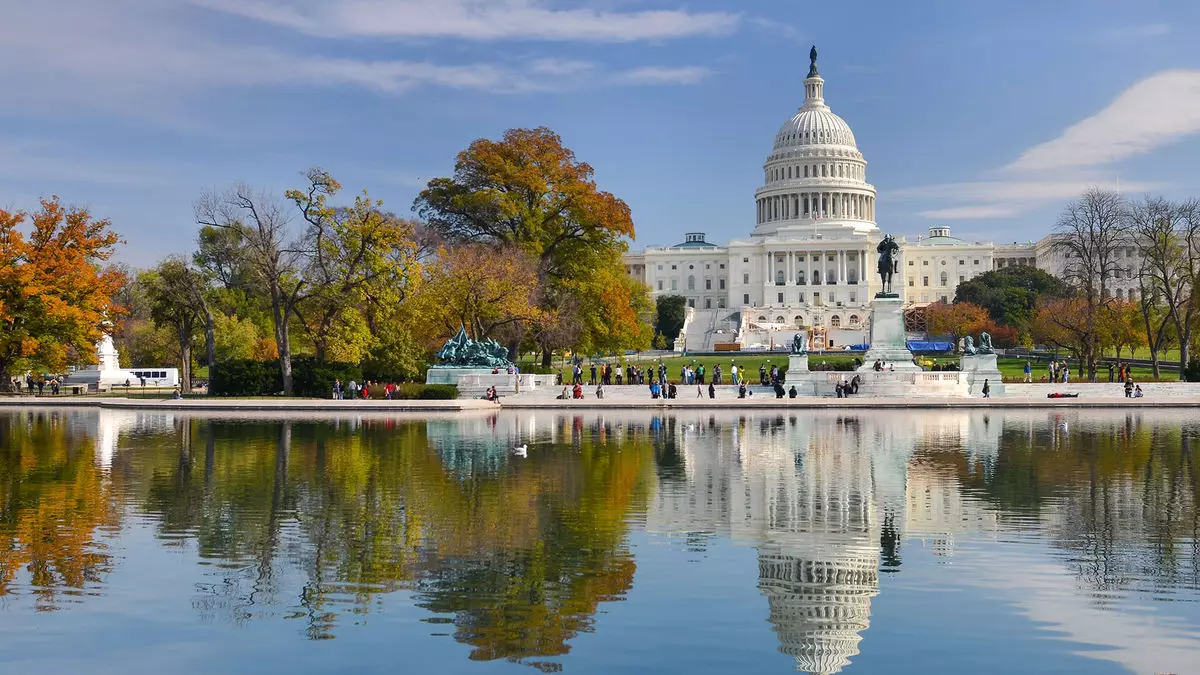As Donald Trump prepares for a potential return to the White House, the travel sector is bracing for significant policy shifts that could redefine its landscape. The implications of these changes are vast, affecting everything from immigration to airline regulations. Trump’s earlier tenure saw a strict adherence to traditional Republican values, but analysts are suggesting that this new administration may deviate significantly from past practices. According to travel analyst Gary Leff, Trump’s second term could signal a departure from previous pro-business stances that defined Republican leadership.
The nature of Trump’s administration this time around is shrouded in uncertainty. Unlike his first term, where mainstream Republicans held sway, there appears to be a growing dissonance with traditional party lines. “This time may be different,” Leff posits, indicating a potential shift in how the new administration engages with both domestic and international travel policies.
Border Control and Visa Policies: A New Frontier for Travel
Central to the discussion surrounding travel policies is the issue of border control. Trump’s stringent immigration policies likely indicate that increased scrutiny will be directed at airport arrivals. This shift stands in stark contrast to the Biden administration’s previous efforts to mitigate visa backlogs, which could be deprioritized under the proposed changes. The current climate of heightened border security is unlikely to foster an environment conducive to inbound tourism.
Leff notes that aggressive foreign policy rhetoric might further complicate matters, diminishing the likelihood of achieving visa-free travel agreements and fostering diplomatic relations that would benefit the travel sector. For instance, deteriorating U.S.-China relations over trade disputes threaten to stall the long-awaited resurgence of travel between the two nations, an area still struggling to regain pre-pandemic levels of activity.
Before the impending leadership changes, the State Department announced plans to add a million visa appointments by 2025 in a bid to tackle longstanding visa backlogs which have been problematic for the travel industry. However, with a new Secretary of State potentially filling the role, the fate of this initiative hangs in the balance. There is a genuine concern that political re-alignments could impact these critical decisions.
Geoff Freeman, the CEO of U.S. Travel, congratulated Trump in a statement acknowledging the forthcoming ‘mega-decade’ of sports events slated to be held in the U.S., including the World Cup and the Olympics. These events add urgency to the need for addressing visa procedures, yet officials may find themselves at an impasse if priorities shift.
Conversely, there may be opportunities on the horizon for airlines if a Trump administration chooses to pivot away from the current regulatory environment. The Biden administration’s stringent antitrust actions aimed at limiting mergers and consolidations have faced pushback, suggesting there could be a more nurturing environment for such business practices under Trump.
Lucinda Guthrie, from Mergermarket, remarked that a Trump-led administration could herald “a breakout year for M&A” while cautioning that Vice President-elect JD Vance provides contradictory support for antitrust enforcement actions, complicating potential mergers further. Should the new administration adopt a friendlier stance towards airline partnerships, such as those between American Airlines and JetBlue, it may pave the way for new collaborative models within the industry.
Meanwhile, recent investigations into airline competition and loyalty programs illustrate the Biden administration’s aggressive consumer protection stance. A change in leadership could very well signal a less rigorous regulatory framework, potentially easing the financial burdens imposed by hefty penalties on airlines due to alleged violations of consumer rights. The airline sector might anticipate a reduced imperative to comply with consumer protection initiatives that were foregrounded during Biden’s presidency.
Bipartisan Policies: The Expected Continuity
While Trump’s return may give rise to significant changes, it is essential to note the potential continuity of certain bipartisan initiatives. Legislation, such as the greatly supported $1.2 trillion bipartisan Infrastructure and Investment and Jobs Act, which encompasses transportation upgrades, may be immune to sweeping reversals. The overwhelming public support for this act reflects a shared commitment across party lines that could limit drastic policy changes.
As Trump’s administration unfolds, the public’s reception of various policies will be critical. While substantial shifts might occur, the foundation laid by bipartisan support could provide a stabilizing force that tempers divisive actions. Travel stakeholders and consumers alike will observe closely how these developments materialize as the new administration comes together, poised to directly influence the future of travel in the United States.


Leave a Reply